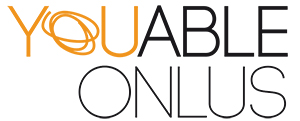
La Giordania è un paese pacifico al centro di diversi conflitti, questo l’ha resa da molti anni, un paese di profughi (Palestinesi, Yemeniti, Libici, Kurdi,Iraqeni, Siriani).
Dopo aver sostenuto gli atelier ortopedici di Terre Des Hommes Syria nel 2013 grazie a Fondazione Prosolidar, a causa delle difficoltà nel proseguire le attività, la You Able Onlus ha cercato altre vie per aiutare le vittime del conflitto, nel Natale 2013 il confronto con la Campagna contro le Mine e la nascita di un’alleanza che porterà un lunghissimo e ottimo lavoro. Il Direttore della Campagna contro le Mine di Roma, il dottore Giuseppe Schiavello, ci presenta Kamel Saadi, Presidente di LLCR, associazione che si occupa delle vittime di mine in Giordania. Nell’Aprile 2014 vengono inviati i primi kit protesici per i bambini siriani ad Amman. Nel Giugno 2014 la prima missione per visitare i centri ortopedici, i centri di accoglienza, le fondazioni locali operative sul campo, le Ong italiane e i loro progetti e anche per visitare i beneficiari dei kit inviati (dobbiamo uno speciale grazie alla nostra UTL ad Amman). Appena rientrati nasce il progetto di aprire l’atelier ortopedico ad Amman insieme alla Campagna contro le Mine, gestito dal partner locale LLCR.
L’obiettivo principale dei promotori del progetto è aiutare chiunque abbia bisogno, di qualsiasi età sia e di qualsiasi nazionalità e religione sia. Le attività iniziano, acquisti di macchine, ausili e materie prime.
Per seguire le attività: www.paolabioccacenter.eu
LLCR – Life Line Consultancy and Rehabilitation
At the age of 14, Kamel Saadi became a landmine survivor and amputee.
On 16 March 1979, Saadi was enjoying a picnic with family and friends near Umm Qais, an area along the Jordanian‐Israeli border contaminated with landmines from Jordan’s conflicts with Israel during the 1960s and 1970s. While walking along a hilly pathway, he stepped on a rock concealing a landmine that caused severe damage to his foot; eight hours later, doctors amputated his left foot.
In the coming years, Saadi underwent rehabilitation and networked with other amputees. In 1985, he had to
terminate his college studies at Glendale Community College in Los Angeles, California (U.S.), to return home for a third amputation to reach an eight‐inch below‐the‐knee stump (a so‐called perfect amputation).
Inspired by his and others’ experiences, he founded Life Line Consultancy and Rehabilitation in 2007 to provide assistance to other landmine survivors and persons with disabilities. LLCR is a Jordanian national nonprofit that assists survivors with their physical, emotional and financial needs, while also striving to educate the public about persons with disabilities (particularly amputees regardless of the cause) and landmine hazards through mine‐risk education. LLCR comprises a three‐person staff and contracts with others when needed depending on the projects.
According to Saadi, “Our style is based on simplicity, heart to heart, direct interaction, involving professional knowledge based on specific demands, and the provision of immediate needs; a hug or a handshake to your surprise may often be an immediate need.”
Mission
LLCR’s mission is to instill self‐confidence in survivors and help them reach their goals and objectives by utilizing their capabilities. LLCR aims to create an atmosphere that encourages landmine/explosive remnants of war survivors and other amputees to be independent, productive members of society. Its training, rehabilitation and confidence‐building courses, consultations and workshops seek to address survivors’ needs beyond physical rehabilitation. For successful reintegration into communities, LLCR helps create conditions within remote areas that allow survivors with limb loss and/or deformities to obtain their required care.
LLCR employs various creative outlets, such as painting, drawing, sculpture, mosaic and carving into rehabilitation. In addition, it uses theatrical production to teach schoolchildren in Jordan’s mine‐affected regions how to identify and avoid the threat of ERW. LLCR developed a play called “We Love Life” in 2008 in partnership with James Madison University’s Center for International Stabilization and Recovery in response to Jordan’s landmine‐stricken communities, their critical need for mine‐risk education and the hopes of preventing future landmine incidents. Jordanian survivors and amputees serve as actors in the play. In addition to creating opportunities for survivors to find themselves through the theater, this project helps create job opportunities for
them in the arts business. LLCR and CISR worked closely with Jordan’s National Committee for Demining and Rehabilitation which provided guidance regarding landmine incidents and assisted with selection of performance locations and implementation of the project.
The play’s success led to the incorporation of MRE into Jordan’s local schools’ art and theater programs in mineaffected areas. Evidence of “We Love Life’s” success could be observed in the children’s art projects, which demonstrated a heightened understanding of the play’s key messages. “We Love Life” was financially supported by a grant CISR secured from the Office of Weapons Removal and Abatement in the U.S. Department of State’s Bureau of Political‐Military Affairs (PM/WRA).
This post is also available in: Inglese




